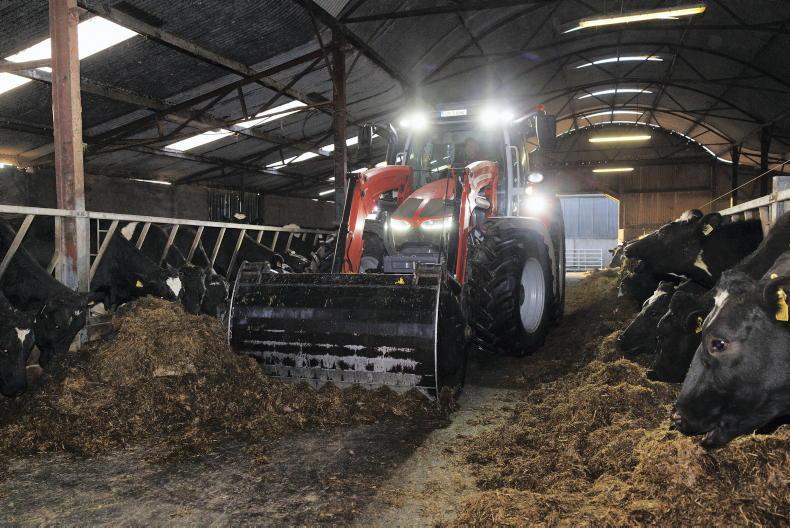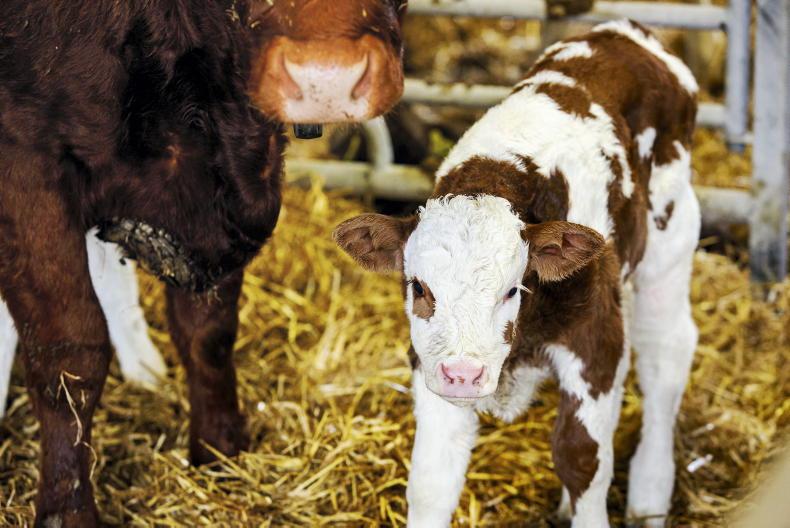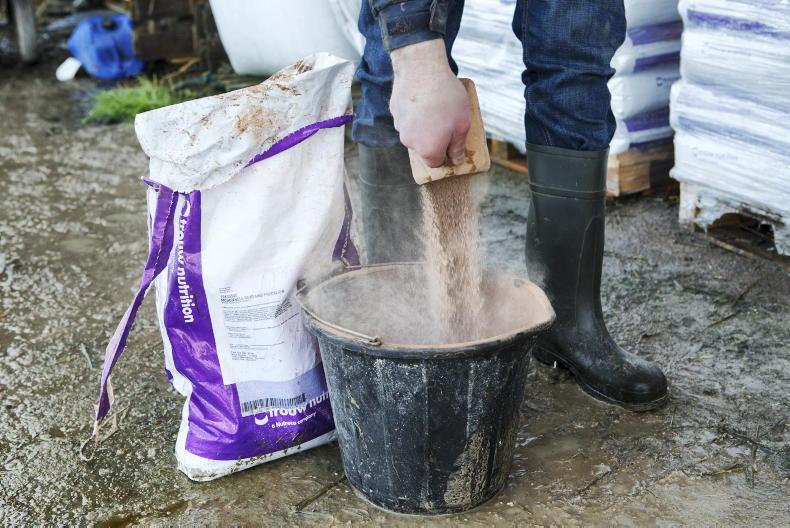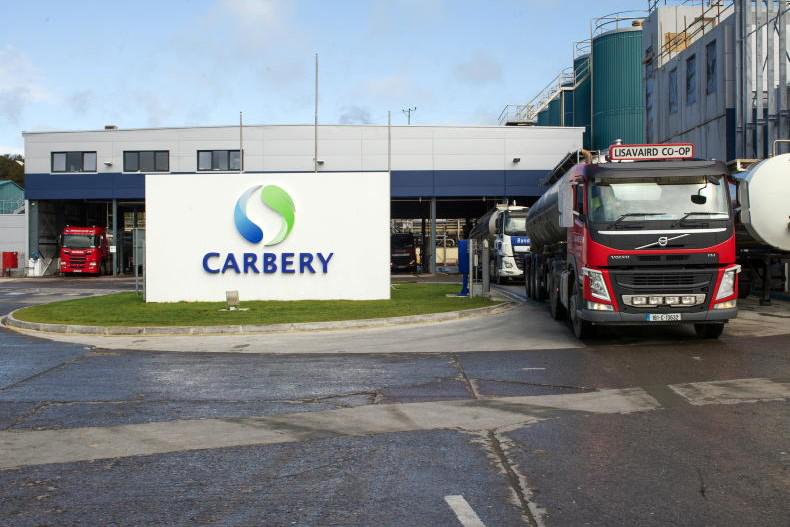Salmonella: Now is the time to give the salmonella vaccine to pregnant animals. The vaccines help prevent abortions in the case of a salmonella outbreak. Salmonella is a bacterial infection, caused by animals ingesting feed contaminated by faeces.
When spreading slurry on grazing land or land used for zero-grazing, make sure the slurry is well washed in before that grass is fed again. In-calf heifers and cows not previously vaccinated will need two shots, three weeks apart. Sticking with animal health, coughing animals, particularly youngstock, continue to pose a problem.
Calves on the Thrive dairy calf to beef farm in Tipperary have been coughing off and on nearly all summer. Doses for lungworm weren’t stopping the coughing. Further tests are identifying other infections, perhaps mycoplasma bovis. Journal vet Tommy Heffernan says bacterial infections such as mycoplasma tend to be deeper in the lungs which could cause the deep, husky cough.
Viral infections such as IBR or pneumonia tend to be higher up the tract and not cause the husky cough. However, lungworm should always be ruled out as the first cause.
Calving: Calving has kicked off on most winter and liquid milk herds. The risk of calving difficulty is greater when cows are fat and there’s a mineral imbalance, particularly magnesium and calcium.
Getting these two things right goes a long way to avoiding problems. If cows calve outside they should be restricted in the amount of lush, green grass they get as this will make them fatter and it’s also high in calcium which locks up magnesium. Preferably, dry cows should be grazing standing hay which is low in potash.
Supplement this with hay or silage that is fibrous and low in potash. Remember the basics – calves need 3l of colostrum from the first milking within an hour of birth. Build up meal feeding post-calving, starting off at 3kg/day and rising slowly.
Start off grazing lighter covers. In general, autumn calving cows should not be grazing very high covers as the feed value of the high covers is low.
Collaborations: In this week’s dairy pages we report from the recently converted dairy farm in Roscommon called Western Pastures. The farm business is owned by eight individuals – seven well established farmers plus their accountant. It’s a unique structure and goes to show what’s possible when people put their mind together.
Collaborating like this is unusual in Ireland but is much more common in France, North America and New Zealand. It was suggested at the open day last week that all members need to be aligned in their goals. For example, all members wanted the same type of cow.
Having clear guidelines and protocols for dealing with issues and nominating people to undertake certain tasks was highlighted as being critically important.
Read more
Grass in the fields, money in the bank
Negotiations to start on Kerry milk price
Salmonella: Now is the time to give the salmonella vaccine to pregnant animals. The vaccines help prevent abortions in the case of a salmonella outbreak. Salmonella is a bacterial infection, caused by animals ingesting feed contaminated by faeces.
When spreading slurry on grazing land or land used for zero-grazing, make sure the slurry is well washed in before that grass is fed again. In-calf heifers and cows not previously vaccinated will need two shots, three weeks apart. Sticking with animal health, coughing animals, particularly youngstock, continue to pose a problem.
Calves on the Thrive dairy calf to beef farm in Tipperary have been coughing off and on nearly all summer. Doses for lungworm weren’t stopping the coughing. Further tests are identifying other infections, perhaps mycoplasma bovis. Journal vet Tommy Heffernan says bacterial infections such as mycoplasma tend to be deeper in the lungs which could cause the deep, husky cough.
Viral infections such as IBR or pneumonia tend to be higher up the tract and not cause the husky cough. However, lungworm should always be ruled out as the first cause.
Calving: Calving has kicked off on most winter and liquid milk herds. The risk of calving difficulty is greater when cows are fat and there’s a mineral imbalance, particularly magnesium and calcium.
Getting these two things right goes a long way to avoiding problems. If cows calve outside they should be restricted in the amount of lush, green grass they get as this will make them fatter and it’s also high in calcium which locks up magnesium. Preferably, dry cows should be grazing standing hay which is low in potash.
Supplement this with hay or silage that is fibrous and low in potash. Remember the basics – calves need 3l of colostrum from the first milking within an hour of birth. Build up meal feeding post-calving, starting off at 3kg/day and rising slowly.
Start off grazing lighter covers. In general, autumn calving cows should not be grazing very high covers as the feed value of the high covers is low.
Collaborations: In this week’s dairy pages we report from the recently converted dairy farm in Roscommon called Western Pastures. The farm business is owned by eight individuals – seven well established farmers plus their accountant. It’s a unique structure and goes to show what’s possible when people put their mind together.
Collaborating like this is unusual in Ireland but is much more common in France, North America and New Zealand. It was suggested at the open day last week that all members need to be aligned in their goals. For example, all members wanted the same type of cow.
Having clear guidelines and protocols for dealing with issues and nominating people to undertake certain tasks was highlighted as being critically important.
Read more
Grass in the fields, money in the bank
Negotiations to start on Kerry milk price









SHARING OPTIONS